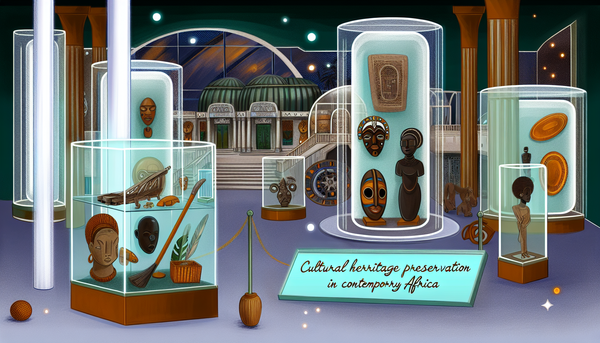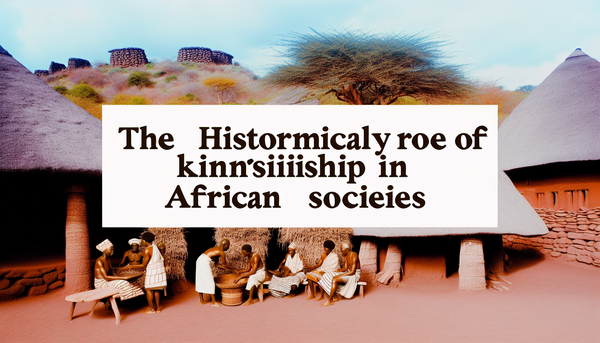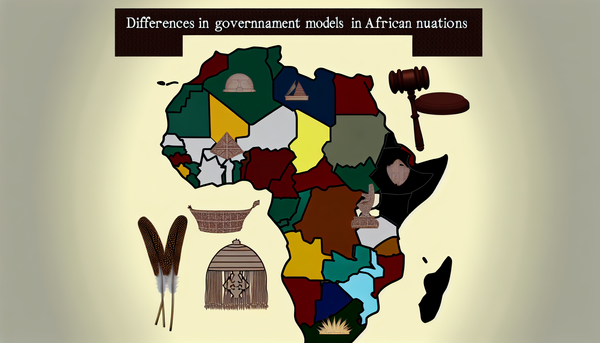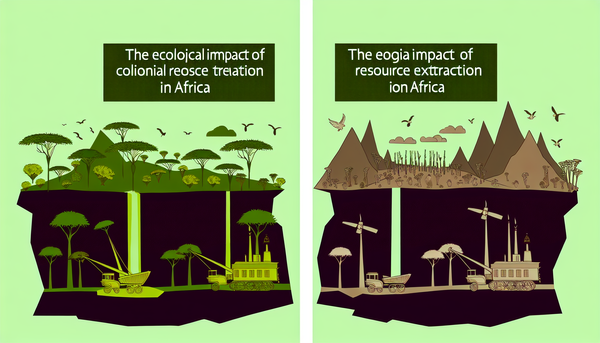The Legacy of Freedom Fighters in African Liberation Struggles
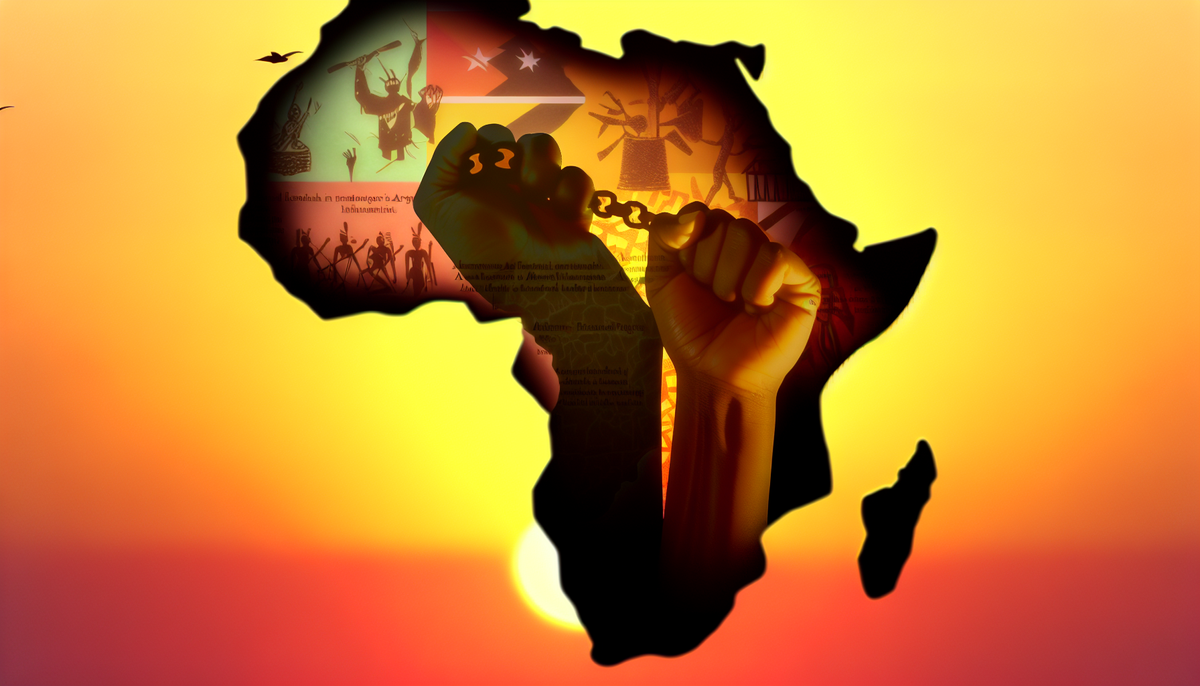
Introduction: Overview of African Liberation Movements
The landscape of Africa's history is profoundly shaped by a series of liberation movements aimed at combating colonialism and oppression. These movements emerged primarily during the mid-20th century, a period marked by widespread decolonization across the continent. As European powers retreated, African communities rallied to reclaim their autonomy and cultural identities, often at great personal and collective sacrifice.
The struggles for liberation were diverse, characterized by a variety of strategies, ideologies, and influences. From armed resistance to peaceful protests, figures like Nelson Mandela, Patrice Lumumba, and Kwame Nkrumah became iconic leaders in their quests for freedom. Their efforts galvanized the populous and brought international attention to the plight of colonized nations.
The impact of these movements extended beyond immediate political changes, fostering a sense of nationalism and unity among previously fragmented societies. While many nations achieved independence, the aftermath of colonial rule posed significant challenges, such as economic disparity, political instability, and cultural conflicts. Nonetheless, the legacy of these freedom fighters continues to inspire contemporary struggles for justice and equality, reminding us of the enduring quest for liberation across the globe.
Key Figures and Their Contributions
The African liberation movements were defined by a cadre of influential leaders whose visions and sacrifices shaped the continent's path toward independence. Among them, Nelson Mandela stands out as a symbol of resilience and freedom. His leadership in the African National Congress (ANC) and his long imprisonment galvanized global support for the anti-apartheid struggle in South Africa, ultimately leading to the dismantling of an oppressive regime.
Kwame Nkrumah, the first president of Ghana, was instrumental in promoting Pan-Africanism and inspiring other nations to pursue self-rule. His emphasis on economic independence and unity among African states laid the groundwork for future collaborations across the continent.
Patrice Lumumba, the first Prime Minister of the Democratic Republic of Congo, became a martyr for liberation after advocating for national sovereignty against neo-colonial forces. His vision of a united and free Congo resonated throughout Africa, igniting passions for independence.
Other notable figures include Jomo Kenyatta in Kenya, who fought against British colonial rule, and Thomas Sankara of Burkina Faso, who championed radical reform and empowerment for the impoverished. Collectively, these leaders exemplify courage and commitment, leaving indelible marks on their nations and the broader quest for African liberation.
Impact on Post-Colonial Governance
The aftermath of African liberation movements significantly influenced the continent's governance structures, leading to a complex interplay between aspirations for democracy, national unity, and the remnants of colonial rule. As nations gained independence, many leaders sought to establish systems that reflected the ideals of freedom and self-determination. However, the transition was often tumultuous, marked by challenges such as political instability, corruption, and ethnic tensions.
A fundamental impact of liberation movements was the emergence of nationalist ideologies. Leaders like Nelson Mandela and Kwame Nkrumah emphasized the importance of unity, urging citizens to transcend ethnic divides in favor of a collective national identity. This vision aimed to foster solidarity and cooperation, which were critical for nation-building.
Nevertheless, the quest for governance was marred by dictatorial regimes and military coups, as some leaders exploited their power, deviating from democratic principles. The legacies of these liberation movements often shaped political discourse, calling for accountability and social justice.
In many cases, former freedom fighters transitioned into governing roles, wielding both their revolutionary credentials and the expectations of their populations. As a result, the struggle for effective and representative governance remains a central theme in post-colonial Africa, illustrating the lasting impact of liberation movements on contemporary political realities.
Cultural Influence and National Identity Formation
The African liberation movements not only reshaped political landscapes but also played a crucial role in cultural influence and national identity formation. As countries fought against colonial oppression, there was a revival of African cultures, languages, and traditions that had been suppressed. Leaders recognized that cultural pride was essential for fostering a cohesive national identity and unifying diverse ethnic groups.
Movements often included a reawakening of traditional customs, arts, and literature, promoting works that celebrated African heritage. This cultural renaissance instilled a sense of belonging and pride among newly independent citizens. For instance, the writings of authors like Chinua Achebe and Wole Soyinka articulated the struggles and aspirations of a continent emerging from colonial shadows, inspiring generations to embrace their identities.
Moreover, many liberation leaders advocated for educational reforms that emphasized indigenous knowledge systems and languages. This effort was vital in combating the lingering effects of colonial education, which often devalued African traditions in favor of Western ideals. In essence, these movements laid the groundwork for a shared narrative, weaving together histories and cultures to foster national unity. The newfound emphasis on identity has continued to shape contemporary African societies, resonating through music, art, and community practices, reinforcing connections to the past.
Comparison with Other Global Liberation Efforts
The African liberation movements of the 20th century often drew parallels with other global liberation efforts, embodying a universal struggle against oppression and colonialism. Similar to the struggles for independence in India, Vietnam, and countries in Latin America, African nations sought to assert their sovereignty and redefine their identities in the wake of imperial dominance. The tactics employed, ranging from armed resistance to peaceful protests, highlighted a shared quest for self-determination.
In India, leaders like Mahatma Gandhi emphasized non-violent resistance against British rule, inspiring African activists such as Mandela and Martin Luther King Jr. to adopt similar methods in their struggles. The Civil Rights Movement in the United States also shared ideological connections with African liberation, particularly in its fight against racial injustice and inequality, leading to cross-continental solidarity.
Furthermore, the Bandung Conference of 1955 represented a significant moment in anti-colonial sentiment, bringing together countries from Africa and Asia to discuss mutual cooperation and support against imperialism. However, while similarities exist, the unique historical, cultural, and socio-political contexts of each region influenced the strategies and outcomes of these movements. Thus, the African liberation story is both a distinct narrative and a vital chapter in the global fight for human rights and dignity.
Challenges and Obstacles Faced During Struggles
The African liberation movements confronted myriad challenges and obstacles that complicated their quest for independence and self-determination. One of the primary hurdles was the violent repression employed by colonial regimes, which often resorted to brutal measures to quell dissent. Armed confrontations, imprisonments, and killings created a climate of fear that not only hindered mobilization efforts but also led to significant casualties among freedom fighters and civilians alike.
Additionally, ideological divisions within liberation groups presented internal challenges. Competing agendas, whether rooted in Marxism, Pan-Africanism, or nationalism, sometimes resulted in fragmentation and weakened collective efforts. This disunity often provided colonial powers the opportunity to exploit divisions, leading to prolonged struggles and delayed independence.
Economic disparities and a lack of resources further exacerbated the difficulties. Many liberation movements relied heavily on external support, which was not always reliable. Moreover, the aftermath of colonial exploitation left many nations with devastated economies, complicating post-independence governance.
Lastly, the international context also posed challenges, as Cold War dynamics led to foreign interventions and alignments that complicated local struggles for freedom. Ultimately, these obstacles tested the resolve of liberation movements, shaping their strategies and influences throughout the fight for independence.
Legacy and Continuing Influence in Modern Times
The legacy of African liberation movements continues to resonate in contemporary society, shaping political, social, and cultural landscapes across the continent and beyond. One significant aspect of this legacy is the enduring emphasis on self-determination and human rights. The ideals of freedom and equality championed during the struggles for independence have inspired ongoing movements advocating for democracy, social justice, and good governance.
The narratives of prominent figures such as Nelson Mandela, Kwame Nkrumah, and Winnie Mandela have become powerful symbols for contemporary activists. Their life stories motivate new generations to challenge corruption, fight for gender equality, and address issues such as poverty and climate change. The principles of Pan-Africanism and unity, originally articulated during the liberation struggles, continue to influence regional organizations like the African Union, fostering cooperation among African nations to address common challenges.
Moreover, the cultural revival initiated during liberation struggles persists today, as African artists, musicians, and writers draw from the rich heritage of their ancestors to craft narratives that reflect resilience and identity. Events like Africa Day underscore the importance of cultural unity and shared history, reminding citizens of their struggles. Thus, the legacy of these movements lives on, shaping aspirations and inspiring collective action in the modern era.
